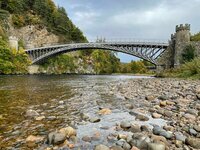Why all whisky distilleries are on the water

Why Whisky Distilleries Are Located Near Water
Water, the lifeline of our planet, plays a crucial role in the art and science of whisky distillation. It's no coincidence that many renowned whisky distilleries have found their home on the banks of babbling brooks, tranquil lakes, or close to pure, natural springs. This article delves into the heart of whisky production to answer the question: "Why are whisky distilleries always located near water?"
The Basis of Whisky: Water as Foundation
The history of whisky distillation is deeply rooted in locations rich in natural water sources. Water is not just essential for life; it's indispensable for creating whisky. From malting the barley to the final distillation process, water plays multiple roles, each with its unique influence on the end product.
1. Malting and Mashing: The First Steps
The malting process, where barley is soaked in water to germinate, requires large amounts of clean, pure water. This step converts the sugars in the barley, necessary for later fermentation. Then, during mashing, water is mixed with the malted barley to further release the sugars. The quality of this water has a direct impact on the taste and quality of the whisky.
2. Cooling During Distillation
Distillation requires significant cooling, especially after condensing the alcoholic vapors back to liquid form. Water from nearby sources is often used in the cooling systems of distilleries, with the natural course of rivers or lakes providing ideal cooling methods.
3. The Role of Water in Maturation
While water is not directly involved in the maturation process in barrels, the ambient humidity, which can be greatly influenced by nearby bodies of water, plays a role in how the whisky matures, including the rate of evaporation and the interaction between the whisky and the wood of the barrel.
The Influence of Terroir
The term 'terroir' is often associated with wine, but it's just as relevant for whisky. The unique composition of local water, rich in minerals or conversely soft, affects the flavor profiles of the whisky. Distilleries located in areas with uniquely composed water often claim that this contributes irreplaceably to the character of their whisky.
Historical and Practical Considerations
In the early history of whisky distillation, distilleries were often remote to evade tax inspectors. Access to an independent water source was vital in these isolated locations. Additionally, transportation was a challenge in those times. Waterways not only provided a solution for water supply but also for transporting raw materials and the end product.
Modern Innovations and Sustainability
Although modern technologies and infrastructure have reduced the necessity for distilleries to be close to water sources, many remain loyal to their original locations because of tradition and the unique influence of local water on their products. Moreover, many distilleries commit to sustainable water usage, considering the ecological footprint of whisky production.
Comments (0)
No comments found.












